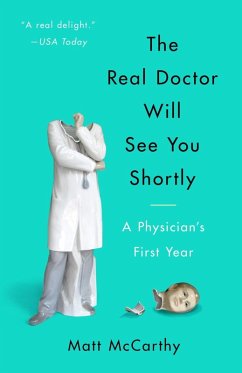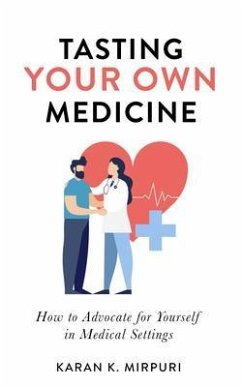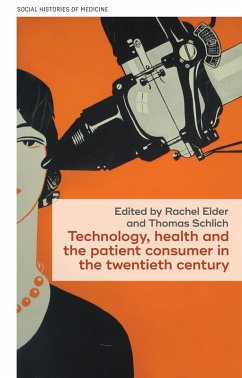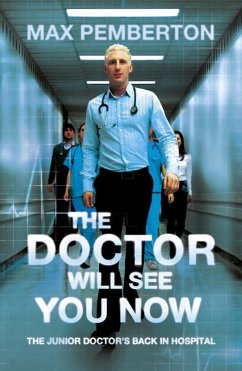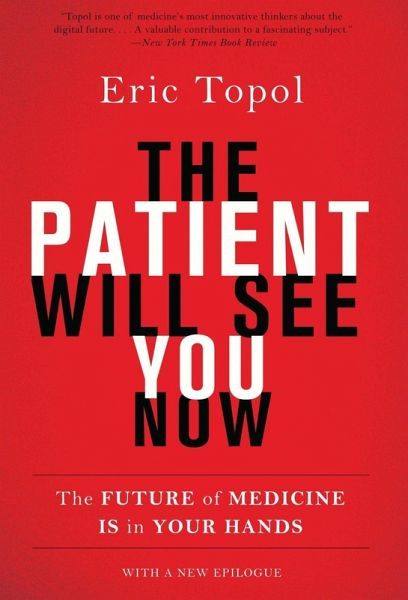
The Patient Will See You Now (eBook, ePUB)
The Future of Medicine is in Your Hands

PAYBACK Punkte
0 °P sammeln!
The essential guide by one of America's leading doctors to how digital technology enables all of us to take charge of our health A trip to the doctor is almost a guarantee of misery. You'll make an appointment months in advance. You'll probably wait for several hours until you hear "the doctor will see you now"-but only for fifteen minutes! Then you'll wait even longer for lab tests, the results of which you'll likely never see, unless they indicate further (and more invasive) tests, most of which will probably prove unnecessary (much like physicals themselves). And your bill will be astronom...
The essential guide by one of America's leading doctors to how digital technology enables all of us to take charge of our health
A trip to the doctor is almost a guarantee of misery. You'll make an appointment months in advance. You'll probably wait for several hours until you hear "the doctor will see you now"-but only for fifteen minutes! Then you'll wait even longer for lab tests, the results of which you'll likely never see, unless they indicate further (and more invasive) tests, most of which will probably prove unnecessary (much like physicals themselves). And your bill will be astronomical.
In The Patient Will See You Now, Eric Topol, one of the nation's top physicians, shows why medicine does not have to be that way. Instead, you could use your smartphone to get rapid test results from one drop of blood, monitor your vital signs both day and night, and use an artificially intelligent algorithm to receive a diagnosis without having to see a doctor, all at a small fraction of the cost imposed by our modern healthcare system.
The change is powered by what Topol calls medicine's "Gutenberg moment." Much as the printing press took learning out of the hands of a priestly class, the mobile internet is doing the same for medicine, giving us unprecedented control over our healthcare. With smartphones in hand, we are no longer beholden to an impersonal and paternalistic system in which "doctor knows best." Medicine has been digitized, Topol argues; now it will be democratized. Computers will replace physicians for many diagnostic tasks, citizen science will give rise to citizen medicine, and enormous data sets will give us new means to attack conditions that have long been incurable. Massive, open, online medicine, where diagnostics are done by Facebook-like comparisons of medical profiles, will enable real-time, real-world research on massive populations. There's no doubt the path forward will be complicated: the medical establishment will resist these changes, and digitized medicine inevitably raises serious issues surrounding privacy. Nevertheless, the result-better, cheaper, and more human health care-will be worth it.
Provocative and engrossing, The Patient Will See You Now is essential reading for anyone who thinks they deserve better health care. That is, for all of us.
A trip to the doctor is almost a guarantee of misery. You'll make an appointment months in advance. You'll probably wait for several hours until you hear "the doctor will see you now"-but only for fifteen minutes! Then you'll wait even longer for lab tests, the results of which you'll likely never see, unless they indicate further (and more invasive) tests, most of which will probably prove unnecessary (much like physicals themselves). And your bill will be astronomical.
In The Patient Will See You Now, Eric Topol, one of the nation's top physicians, shows why medicine does not have to be that way. Instead, you could use your smartphone to get rapid test results from one drop of blood, monitor your vital signs both day and night, and use an artificially intelligent algorithm to receive a diagnosis without having to see a doctor, all at a small fraction of the cost imposed by our modern healthcare system.
The change is powered by what Topol calls medicine's "Gutenberg moment." Much as the printing press took learning out of the hands of a priestly class, the mobile internet is doing the same for medicine, giving us unprecedented control over our healthcare. With smartphones in hand, we are no longer beholden to an impersonal and paternalistic system in which "doctor knows best." Medicine has been digitized, Topol argues; now it will be democratized. Computers will replace physicians for many diagnostic tasks, citizen science will give rise to citizen medicine, and enormous data sets will give us new means to attack conditions that have long been incurable. Massive, open, online medicine, where diagnostics are done by Facebook-like comparisons of medical profiles, will enable real-time, real-world research on massive populations. There's no doubt the path forward will be complicated: the medical establishment will resist these changes, and digitized medicine inevitably raises serious issues surrounding privacy. Nevertheless, the result-better, cheaper, and more human health care-will be worth it.
Provocative and engrossing, The Patient Will See You Now is essential reading for anyone who thinks they deserve better health care. That is, for all of us.
Dieser Download kann aus rechtlichen Gründen nur mit Rechnungsadresse in A, B, BG, CY, CZ, D, DK, EW, E, FIN, F, GR, HR, H, IRL, I, LT, L, LR, M, NL, PL, P, R, S, SLO, SK ausgeliefert werden.





